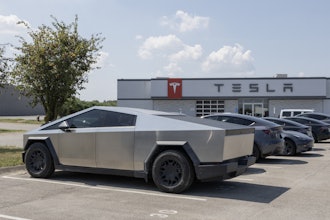DALLAS (AP) -- Federal investigators in charge of investigating the deadly fertilizer plant explosion in West, Texas say they still consider the case open, eight months after the blast killed 15 people and sent debris flying miles away.
One month after the April 17 blast, the U.S. Bureau of Alcohol, Tobacco, Firearms and Explosives and the Texas Fire Marshal's Office declared they had narrowed the initial fire that sparked the explosion to three possible causes: a battery-powered golf cart, an electrical system in the plant or a criminal act. The blast registered as a small earthquake, caving in homes and schools blocks away and requiring a rebuilding process that continues today.
Crisanto Perez, ATF's assistant San Antonio special agent in charge, said in an interview Thursday that those three possibilities remain.
Perez insisted that ATF agents in Waco and Austin continue to work on the case, but he declined to specify what leads they were pursuing or when the investigation might be completed.
"It will remain open until we've exhausted all leads and all possibilities that we could do," Perez said, adding that while not pinpointing a single cause was frustrating, agents had worked hard on a complex case.
"They were faced with a lot of challenges, but they stood strong and they worked through them," Perez said.
He also discussed the case of Bryce Reed, the former West paramedic sentenced Wednesday to 21 months in an unrelated pipe bomb case. Reed's arrest in May came during the height of the blast investigation, leading to questions about whether Reed had anything to do with the explosion.
Local authorities have said he was not linked to the blast, which Perez confirmed. Federal authorities have previously declined to comment on Reed's case.
"There was no evidence that Bryce Reed had any connection to or any cause of the fire," Perez said.
ATF agents were on scene in West, about 80 miles south of Dallas, for about one month after the explosion. Investigators sifted through untold pieces of debris and conducted more than 400 interviews.
Authorities eventually said a fire inside one of the storage buildings at West Fertilizer led to the detonation of ammonium nitrate, a commonly used fertilizer that can be extremely unsafe when stored improperly.
Myriad state and federal agencies are also examining the incident for recommendations on how to improve the storage of ammonium nitrate and its potential hazards.






















